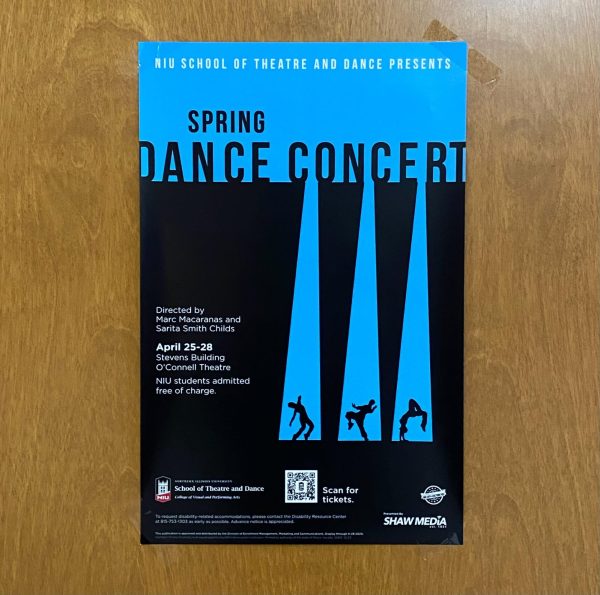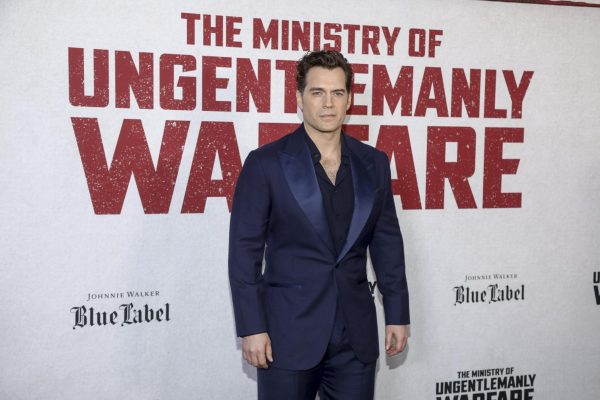“You” delivers chilling protagonist and dark tone
January 22, 2019
Popular stories are often heroic tales of bravery where the underdog reclaims their humanity and against all odds achieves what they have searched for. However, the air of aspirational heroes is dimming as darker characters steal the spotlight; the psychological thriller “You” brings an antihero to light that audiences watch not because they want to be like him, but because they can’t help it.
Based on the chilling 2014 novel by Caroline Kepnes, “You” aired Sept. 8 on Lifetime but was repackaged as a Netflix Original Dec. 26. The show was renewed for a second season in December under the premise of Kepnes’ 2016 follow-up novel “Hidden Bodies.”
The series revolves around Joe Goldberg, played by Penn Badgley, a seemingly unremarkable bookstore manager with a fascination for fine literature. Joe becomes enamored with one of his female customers, Guinevere Beck, played by Elizabeth Lail. Beck is a poetry grad student struggling to make ends meet, but her social media accounts tell a different story. Her Facebook and Instagram profiles paint her as a put together, soul-searching writer, and it’s this vivacious yet slightly distraught persona that attracts Joe to her doorstep.
Joe dives into Beck’s life through her public social media accounts and operates under the disillusioned perspective she is everything he wants: romantic, well-intentioned and in desperate need of protection. While Joe knows her online personality is a rouse, he doesn’t care; Joe is desperate to believe he knows Beck and yet simultaneously he’s constantly discovering more.
The show is carefully crafted with impeccably written dialogue and thoroughly explored characterization. Joe is immediately smitten with Beck, and the audience hears every sweet, sadistic thought running through his mind as he watches her struggle to grab a book from the top shelf. He inserts himself into her life but carefully places himself in her blind spots; he wants to be in her life without detection until the moment is right.
The narration style delves into Joe’s mind as he rationalizes his movements, actions the audience may otherwise consider manic. The show casually breaks the fourth wall as Joe addresses the audience multiple times, ensuring them he is the good guy in the story, and it’s everyone else who’s crazy. Joe isn’t portrayed as a monster, but as a misguided and deranged individual who operates under a skewed sense of chivalry, an ideology the audience sees through his inner monologue.
Badgley gives a chilling performance leaving the audience to stalk the stalker as he dives deeper into his psychotic seduction of Beck. Joe’s anti-heroism is relatable despite his deeply disturbed intentions. While he’s charming, Joe’s craving for connection is innocent in intention but wicked in execution. His archetype of the handsome savior crumbles as a menacingly smart persona takes over, compelling him to commit crimes. His fluency in deception is captivating; the more dangerous Joe becomes, the harder it is to look away.
Unconventional protagonists like Betty Cooper from “Riverdale,” Sabrina from “The Chilling Adventures of Sabrina” and stalker-turned-boyfriend Joe are outrunning stock heroes as their plots give an in-depth look into their motives.
Villains are humanized through the exploration of the psyche, turning an unhinged man into an altruistic white knight. It’s not a matter of Joe being right or wrong; it’s about the audience being exposed to his rationale.
Audiences gobble up bloodthirsty serial killer dramas because they root for haunted yet deeply genuine souls who strike a chord within themselves. Through revealing inner monologues, “You” let audiences into the mind of an obsessed man.
The production team didn’t merely shoot scenes of dead bodies and dark alleyways and leave the audience to put the pieces together. “You” humanized its villain, dismembered its heroine and connected intention to action through expertly crafted inner dialogue.
This new breed of antihero contains both dark motives and noble intentions one can easily empathize with.













